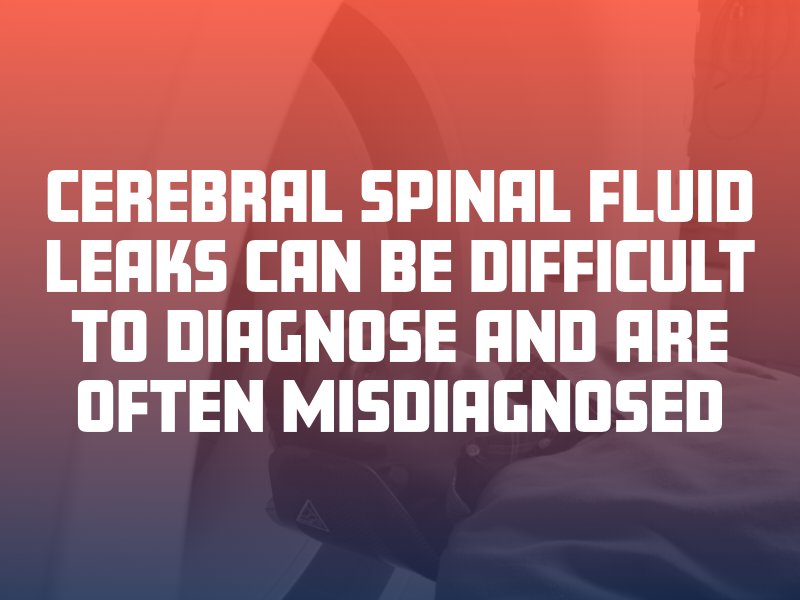Cerebrospinal fluid (CSF) is a clear, colorless liquid that surrounds and cushions the brain and spinal cord. It’s responsible for protecting the brain from injury, supplying nutrients to the nervous system, and removing waste products. When a leak occurs, this fluid can drain from its proper place, causing a range of symptoms and, in some cases, serious complications.
Unfortunately, it’s quite challenging for doctors to diagnose this condition promptly. The consequences can have a debilitating effect on someone’s health if left untreated or misdiagnosed due to increased risks of meningitis and other neurological issues.
How Are Cerebral Spinal Fluid Leaks Caused?
CSF leaks are usually caused by a rupture or tear in the dura, which is responsible for housing the fluid surrounding your brain and spinal cord. Some typical culprits of this kind of injury include:
Automobile Accidents
The impact from a car accident can cause a sudden force to the head or spine, potentially damaging the dura mater and leading to a CSF leak.
Workplace Accidents
Head trauma often occurs in hazardous occupational environments, where falling debris or encounters with heavy machinery might lead to forceful blows to the head.
Physical Assaults and Traumatic Brain Injury
Blunt force-trauma – like intentional assaults or accidental injuries like those that can occur in sporting events – may breach protective membranes and cause these injuries.
Falls
A fall from a significant height or a slip-and-fall accident may cause trauma to the head or spine, disrupt the dura mater, and result in a CSF leak.

Why Are Cerebral Spinal Fluid Leaks So Difficult to Diagnose?
CSF leaks can be challenging to diagnose for a few reasons.
First, they often present with symptoms that are common to many other conditions such as headaches and dizziness, making the identification of a CSF leak more problematic for your medical practitioner.
Additionally, standard neuroimaging tools commonly utilized such as a Computed Tomography scan (CT scan) or Magnetic Resonance Imaging (MRI), might not detect smaller or intermittent leaks. This could potentially deprive you of an immediate diagnosis and delay crucial treatments.
Incorrect or delayed diagnosis is a serious matter, so always advocate for yourself and insist that your doctor take your symptoms seriously.
What To Do If You Suspect a Misdiagnosis
If you suspect a misdiagnosis, taking immediate steps is crucial to ensure your health doesn’t deteriorate further. Here’s what you need to do:
Seek a Second Opinion
You should start by seeking a second opinion. Don’t be hesitant – it’s quite common and can lead to more accurate diagnoses. Specialists – like neurologists – may possess the necessary expertise in detecting cerebrospinal fluid leaks which your primary doctor might lack.
Keep Journal of Symptoms
Maintaining a journal of ongoing symptoms including their frequency and severity is also helpful, as it can aid doctors in an accurate diagnosis. This helps to monitor changes over time and determine the best course of treatment.
Be Persistent
Make sure you are persistent. Be your own health advocate because nobody knows your body better than you do. If you experience pain or worsening symptoms, don’t hesitate to ask your doctor about possible alternative diagnoses.
Contact a Personal Injury Lawyer
In some cases, a misdiagnosis will lead to additional injuries or exacerbated issues, and seeking legal advice may be beneficial as you could be entitled to compensation.
If you need help, don’t hesitate to contact an Albuquerque personal injury lawyer from Fine Law Firm today.




